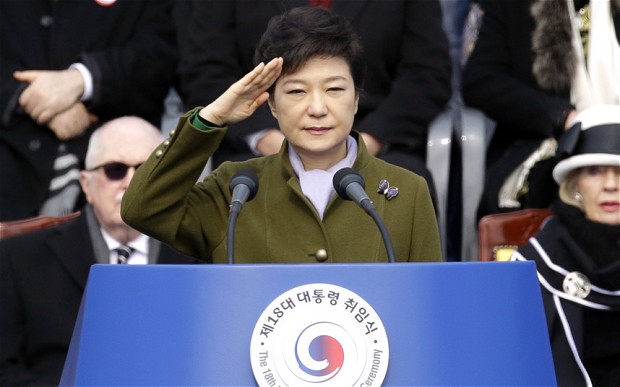
By Matthew Barbari
The Kim Jong-un regime has continued to ramp up tensions in the Korean peninsula over the past few months. North Korea has conducted missile launches in defiance of sanctions placed by the UN and world powers.
The latest missile tests—including a submarine-launched ballistic missile—come after the reported nuclear weapon test in January. The UN continues to debate over further sanctions or actions against North Korea, despite their previous efforts having little impact on deterring the regime from pursuing its nuclear ambitions.
South Korea’s president Park Geun-hye has been negotiating with China and Iran, two of North Korea’s largest economic supporters. Many experts believe that Park is attempting to weaken the North’s relations with those countries in order to gain an advantage in negotiations with Kim Jong-un.
Her meetings with Chinese and Iranian leaders focused on economic ties: China is Seoul’s largest trading partner and Iran, as a crude oil exporter, interests South Korea, the world’s fifth largest importer. It is also noteworthy that Tehran is the primary collaborator with North Korea with regard to its nuclear program.
President Park has also opened negotiations with the U.S. over implementing the Terminal High Altitude Area Defense, or THAAD, a system that would help defend South Korea from nuclear missile attacks. China is particularly concerned about South Korea’s deployment of the THAAD system since it would greatly bolster U.S. military capability in the region.
Despite Park’s ability to open channels of communication with countries with which Seoul previously did not share economic or political ties, and her moves to strengthen the U.S.-RoK alliance, she is struggling at home. In the most recent parliamentary elections, South Koreans showed their disapproval of the president’s policies.
Park’s Saenuri party lost its majority in parliament—winning only 122 of the 300 seats. The rival Minjoo party managed to gain 123 seats, with other smaller parties capturing the rest. It is the first time in 16 years that no party controls a majority of seats in parliament. With a sluggish economy and the perception that the sanctions and Park’s strong rhetoric have failed to prevent the North from testing weapons, many South Koreans feel that change is needed.
With Park now focusing on foreign policy and building strong relationships in Asia and beyond, she hopes to revive the economy and reengage in negotiations with Pyongyang in order to show South Koreans that she still is the right person to lead them. However, much of her public support will depend on how many more tests Kim Jong-un’s regime conducts in the future.
Recommended Readings
Choe Sang-Hun, “After South Korea Spurns Park Geun-hye, She May Press Agenda Abroad,” The New York Times (Apr. 14, 2016)
Daniele Ermito, “The Twilight of President Park’s Trustpolitik,” Foreign Policy Blogs (Feb. 29, 2016)
Donald Kirk, “S. Korea President’s Mission to Iran Busts Up ‘Axis of Evil’ Before N. Korea Party Congress,” Forbes (May 3, 2016)